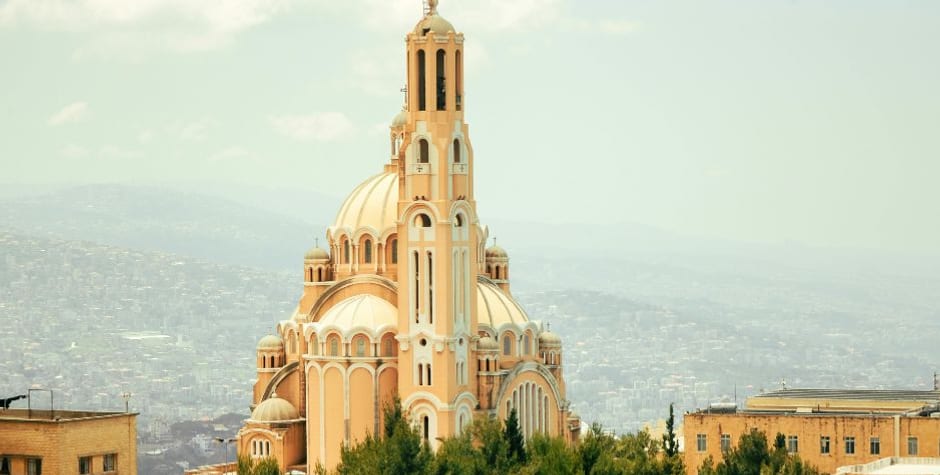

South Lebanon: Rebuilding Hope for Christians Caught Between Two Fronts
South Lebanon: Rebuilding Hope for Christians
Despite the November 2024 ceasefire between Israel and Hezbollah, shelling continues in a ravaged South Lebanon. Exiled Christians are trying to return to their region of origin, but reconstruction remains blocked by the continuous presence of Hezbollah, a central actor in the chaos, which is causing unstable security. The ECLJ alerted the UN Human Rights Council about this situation in its Universal Periodic Review.
Domitille Casarotto
The ceasefire signed in late November 2024 raised hopes for a return to calm. But in response to continued provocations from Hezbollah and its military entrenchment in civilian areas, Israel resumed its targeted strikes. Between February and June 2025, several operations targeted weapons depots, military infrastructure, and firing positions. On June 13, the Israeli operation “Rising Lion,” aimed at strategically destroying Iranian installations, marked a new stage in Israel’s response to the regional threat. For twelve days, the skies over South Lebanon were filled with missiles and drones.
The Lebanese population remains caught between Israeli strikes and Hezbollah’s grip. In several Christian villages of South Lebanon, including Rmeich and Qlayaa, local authorities and many residents have spent months denouncing the establishment of military positions in their orchards and neighborhoods. This deployment directly exposes civilians to retaliation and prevents any return to security or sustainable reconstruction efforts. The autumn 2024 bombings caused considerable destruction, forcing hundreds of families into exile. Even now, many hesitate to return as long as the Lebanese state is unable to ensure their protection.
The Uncertain Return of the South Lebanon Exiles
“The suffering of the inhabitants is immense,” said Father Felfli of Debel in October 2024 (testimony reported by SOS Chrétiens d’Orient). “Fear is widespread among women and children, especially since some homes in Debel were bombed.” Although airstrikes have become less frequent since then, the situation has hardly improved. “We harbor no ill will. We only want to live in peace, cultivate our land, and raise our children,” sighs Father Nagib Al Amil, Maronite priest of Rmeich, adding: “In the South, Christians are eternal hostages” (testimony reported by L’Œuvre d’Orient, July 22, 2025).
The militia backed by Iran claims to defend Lebanon against Israel, but it is the Lebanese who pay the price of this state-within-a-state. Entire neighborhoods and churches—such as Derdghaya’s Greek Melkite church and Qlayaa’s Maronite church—located just kilometers from the border, have been destroyed. Christian families attempting to return home after the closure of refugee camps find only ruins. Many are settling in nearby villages, but their situation remains precarious and access to many services is still limited, noted Karen Achkouty, project manager at SOS Chrétiens d’Orient, in an interview with the ECLJ.
Religious Freedom: ECLJ’s Alarming Observations
While Lebanon has a large and historically rooted Christian community with an established social role, the rise in attacks against Christian sites is alarming. Within just two weeks in January 2024, around ten churches in Beirut and Mount Lebanon were vandalized and looted by a gang, some of whose members were arrested by security forces. Even more concerning: former Muslims who have converted to Christianity face persecution from their families, forcing them to hide or even flee the country. The ECLJ documented these troubling signs of violations of the rights of Lebanese Christians in its contribution to Lebanon’s Universal Periodic Review (UPR) published in July 2025.
The ECLJ calls on Lebanese authorities to take measures to ensure that Christians can freely practice their faith without fear of harassment or threats from family or community members. Furthermore, Lebanon must act swiftly to condemn and dismantle Hezbollah. This movement, responsible for the militarization of the South and the country’s entanglement in regional conflicts, poses a direct threat to Lebanese civilians and Israel. Its reign of terror will only end if it is disarmed and dissolved—a condition that could put an end to Israeli retaliation and open the path to peace.












